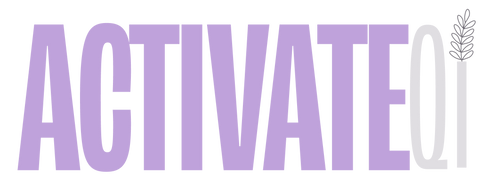Exploring the Heart and Spirit in Traditional Chinese Medicine: Balance, Emotions, and Vitality in Horses and Dogs
In Traditional Chinese Medicine (TCM), the heart is seen as the ruler of both physical vitality and emotional well-being. Known as the "Emperor" among the organs, the heart governs the flow of blood and the spirit, or "shen," which influences consciousness, emotions, and presence in animals. For both horses and dogs, a balanced heart affects their physical health, emotional responses, and their general demeanor.
Here, we’ll explore how TCM views the heart’s role in horses and dogs, signs of imbalance, and practical tips for supporting heart health in these beloved animals.
The Role of the Heart in TCM for Horses and Dogs
In TCM, the heart does more than pump blood; it holds significant influence over an animal’s spirit, emotions, and physical health. The heart in TCM governs:
Blood Circulation
The heart ensures that blood circulates throughout the body, delivering oxygen and nutrients to every cell. When circulation is balanced, it supports vitality, endurance, and energy levels. Horses and dogs with strong heart energy are likely to display stamina and physical vigor.
The Shen, or Spirit
The heart is considered the "shen," or spirit, which represents consciousness and emotional health. For horses and dogs, a balanced heart reflects in a calm, positive disposition. A heart imbalance often manifests as nervousness, skittishness, or excessive alertness, which can make animals appear anxious or ungrounded.
Rest and Recovery
In TCM, the heart’s stability impacts sleep and rest, both critical for healing and mental clarity. A balanced heart helps animals rest peacefully, essential for both emotional stability and physical recovery. An imbalanced heart, on the other hand, can result in restlessness, difficulty relaxing, or issues settling down.
Tongue and Communication
The heart’s energy governs the tongue and, in effect, communication. While horses and dogs don’t use speech, their ability to express and communicate emotions is rooted in a balanced heart. Issues with the tongue, like unusual drooling or discoloration, may indicate an imbalance in the heart.
The Heart’s Emotional Connection: Joy
Every organ in TCM is paired with an emotion, and for the heart, it is joy. In TCM, joy relates to enthusiasm and a zest for life, which, in healthy amounts, keep horses and dogs spirited and engaged. When heart energy is balanced, joy creates emotional resilience, helping animals stay calm, connected, and responsive.
Signs of Emotional Imbalance in Horses and Dogs
When joy becomes excessive or suppressed, it can destabilize the heart. For horses and dogs, an imbalanced heart might show up as high-strung, nervous, or overly excitable behavior. At the opposite end, animals might appear detached, disinterested, or less responsive, indicating that joy may be lacking.
Signs of Heart Imbalance in Horses and Dogs
If the heart is overworked or out of balance, it can present as physical, emotional, and behavioral symptoms. Common signs of heart imbalance include:
Restlessness and Anxiety
Animals may show signs of anxiety or be quick to react to minor stimuli. An imbalanced heart can make it difficult for them to settle, resulting in behaviors like pacing, pawing, or agitation.
Increased Sweating (Horses)
For horses, unexplained or excessive sweating during rest can be a sign that the heart is under strain. Dogs may exhibit increased panting or drooling as comparable signs.
Rapid Heart Rate or Palpitations
A fast or irregular heartbeat is another indicator that the heart is working under strain. For horses and dogs, this may be noticeable if they appear physically distressed or fatigued after light activity.
Sleep Disturbances
Heart imbalance can interfere with restful sleep. Horses or dogs that seem restless at night, unable to relax, or constantly repositioning may be experiencing heart-related imbalance.
Skin, Coat, or Tongue Changes
In TCM, the heart’s health is connected to blood quality, which affects skin and coat. Changes such as a dull coat, rough skin, or tongue abnormalities (such as color changes) may signal a heart imbalance.
Root Causes of Heart Imbalance
To effectively address heart imbalances in horses and dogs, understanding the root cause is essential. Common factors that contribute to heart imbalance include:
Emotional Stress and Trauma
Stress and trauma, whether due to a physical event or separation anxiety, can deeply affect the heart in TCM. Horses and dogs are sensitive animals, and emotional stress can lead to an overworked heart, causing restlessness, irritability, or anxiety.
Blood Deficiency or Poor Circulation
Poor-quality blood or inadequate circulation puts extra strain on the heart. Nutritional deficiency or sluggish circulation can contribute to symptoms such as lethargy, skin issues, or a lack of vigor.
Energy (Qi) Blockages
For the heart to function optimally, energy (or Qi) needs to flow freely. If energy becomes blocked, it can strain the heart and may manifest in symptoms such as palpitations, restlessness, or a decrease in energy.
Dietary Imbalance
An unbalanced diet can impact heart health, particularly if it doesn’t provide essential nutrients for blood and energy support. Insufficient nutrition affects circulation and can increase heart strain.
Age and Physical Health
Older animals or those with chronic health conditions may have reduced heart energy, making them more susceptible to imbalance. Physical health issues may further stress the heart, especially if other organs are also compromised.

How to Support Heart Health in Horses and Dogs
Maintaining balance for the heart in horses and dogs requires a thoughtful approach to lifestyle, diet, and sometimes additional therapeutic support. Here are some ways to help balance and strengthen the heart:
Mindful Nutrition and Feeding Practices
Provide nutrient-rich foods that support healthy blood flow and energy. For horses, this might include quality hay and pasture options, while dogs can benefit from balanced, protein-rich diets that nourish blood and promote vitality.
Stress-Reduction Strategies
Avoid high-stress situations where possible, and offer a peaceful, predictable environment. Calming activities, like gentle walks for dogs or turn-out time for horses, can help maintain heart balance and reduce anxiety.
Herbal and TCM-Based Support
TCM herbal formulations may be used to support heart health, promoting circulation, nourishing blood, and calming the spirit.
Physical Activity and Routine
Regular but gentle exercise helps support circulation and reduces energy stagnation. Establishing a consistent routine fosters a sense of stability, helping the heart and spirit stay balanced.
Consider Acupuncture and Acupressure
TCM practices such as acupuncture and acupressure are often used for heart-related imbalances, as they can relieve blockages and support heart energy. For animals experiencing heart-related anxiety, restlessness, or physical signs of imbalance, these practices may be beneficial.
Adequate Rest and Recovery
Ensure both dogs and horses have ample time for rest. Good sleep supports the heart and spirit, allowing for physical and mental recovery. For horses, this may mean a quiet stall, for dogs, a comfortable, familiar resting place.
Conclusion
In TCM, the heart holds a unique place as the source of life, vitality, and emotional harmony. By caring for the heart and spirit of your horse or dog, you support not only their physical health but their emotional resilience and overall presence. Through a balanced diet, stress management, gentle exercise, and mindful routines, you can help ensure that your animal’s heart remains strong, calm, and vibrant.
With a balanced heart and spirit, your horse or dog can truly thrive, bringing out their best health and happiest self. Supporting their inner harmony means a lifetime of joy, calm, and vibrant energy by their side!





